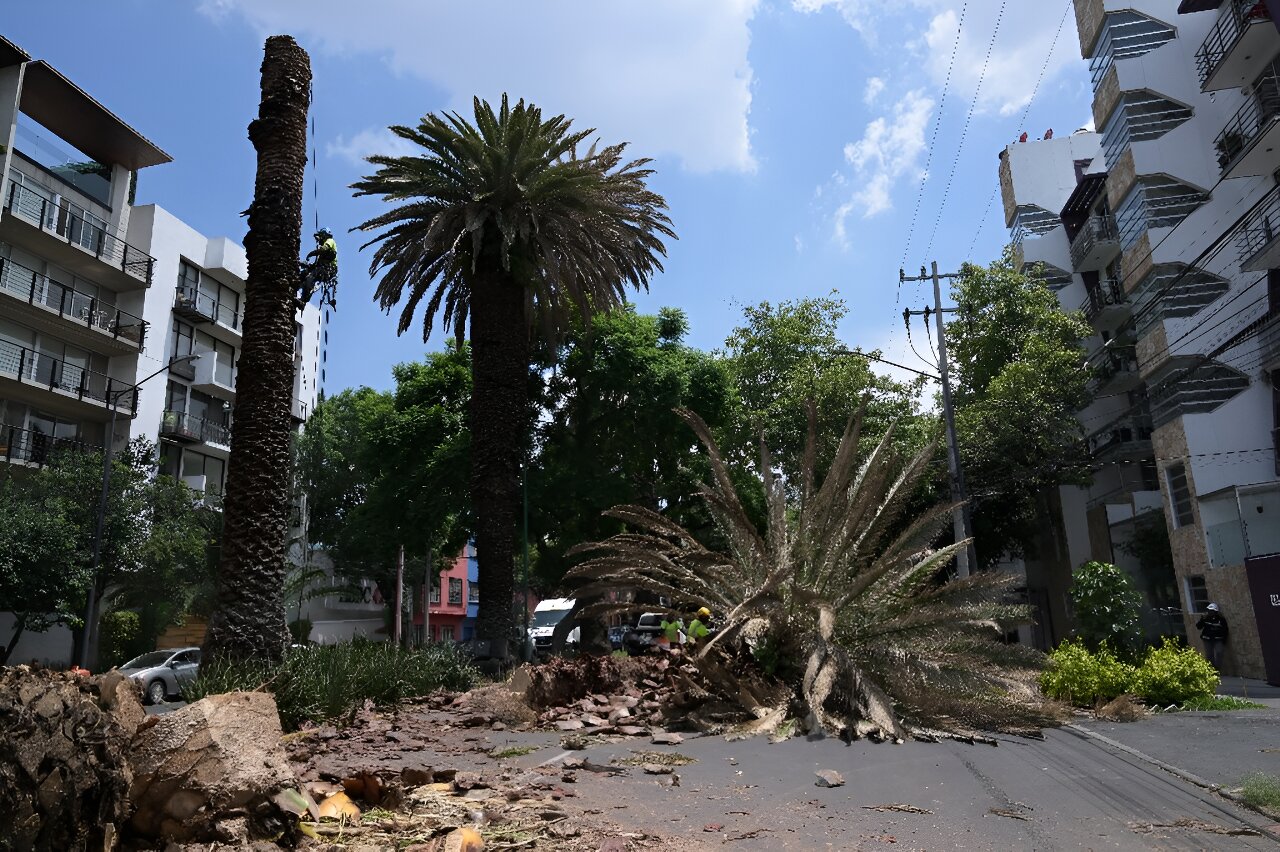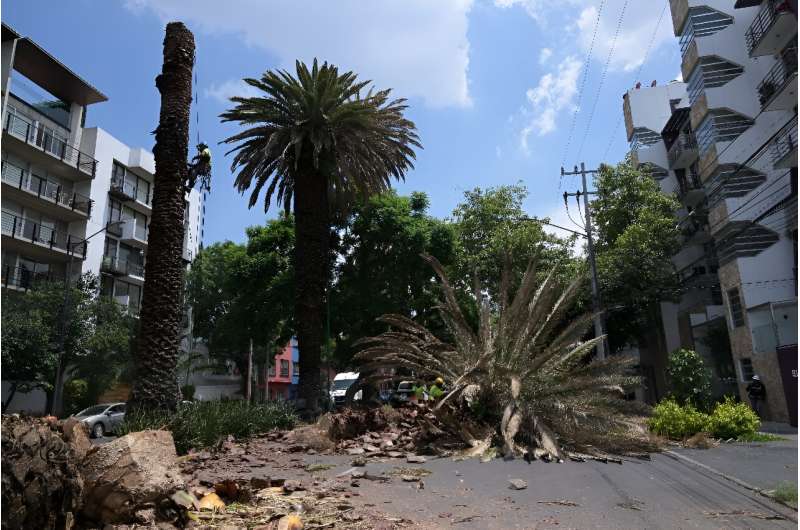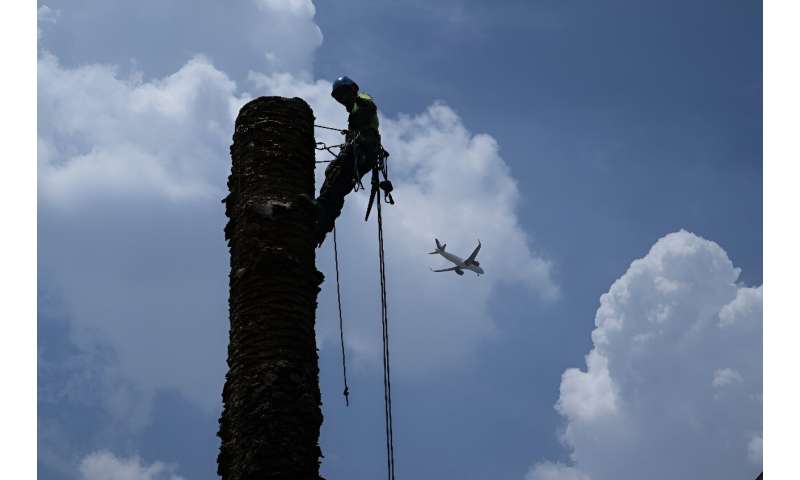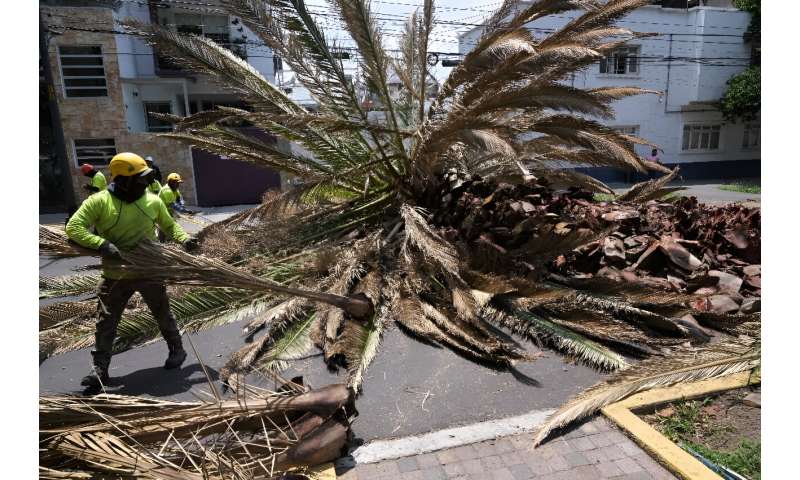

Climate change and a deadly disease spread by insects have forced authorities in Mexico City to chop down palm trees beloved by residents as an emblem of the capital.
The Canary Island date palms, which are endemic to the Spanish archipelago off the coast of northwestern Africa, can sometimes live for more than 200 years.
But the ones providing shade and a splash of green in Mexico City are suffering from lethal yellowing, which experts say is caused by the red palm weevil, a type of beetle.
The pest is native to tropical Asia but has spread around the world, causing irreversible damage to palm trees in various countries.
Climate change is making the trees more vulnerable to such insects, according to Reyna Rojas, an expert in plant disease.
“The increase in temperatures causes much more stress for a plant,” she told AFP.
“As a result, they attract insects,” she added.
Tree surgeons have been cutting down wilting palms in the central Narvarte neighborhood, ripping out part of Mexico City’s history.
“It’s taking away the essence of the neighborhood,” said 55-year-old resident Ivan Felipe.
“Narvarte will no longer be Narvarte without the palm trees,” he added.
Irma Gutierrez, 68, mourned the loss of the trees she has known since childhood.
-

Mexico City’s palm trees are suffering from lethal yellowing, a disease caused by the red palm weevil.
-

Climate change is making palm trees in Mexico City more vulnerable to disease-carrying insects, experts say.
“As long as I have been here, the palm trees have been there,” she said.
Announcing the removal of 155 palm trees in July, the Mexico City government said that the species “has proven to be susceptible to climate change currently occurring worldwide.”
At the time, temperatures in the city were above 30 degrees Celsius (86 degrees Fahrenheit)—higher than normal in the Mexican capital.
Although it is located in the tropics, the city has relatively mild summers due to its altitude of 2,240 meters (7,350 feet) above sea level.
One of the capital’s most iconic palm trees, located on a roundabout on its main avenue Paseo de la Reforma, was removed in April 2022 after it was attacked by fungus.
A native cypress tree was planted in its place, but wilted and withered just weeks later and had to be removed.
© 2023 AFP
Citation:
Climate change, pests threaten Mexico City’s iconic palms (2023, August 31)
retrieved 31 August 2023
from https://phys.org/news/2023-08-climate-pests-threaten-mexico-city.html
This document is subject to copyright. Apart from any fair dealing for the purpose of private study or research, no
part may be reproduced without the written permission. The content is provided for information purposes only.

